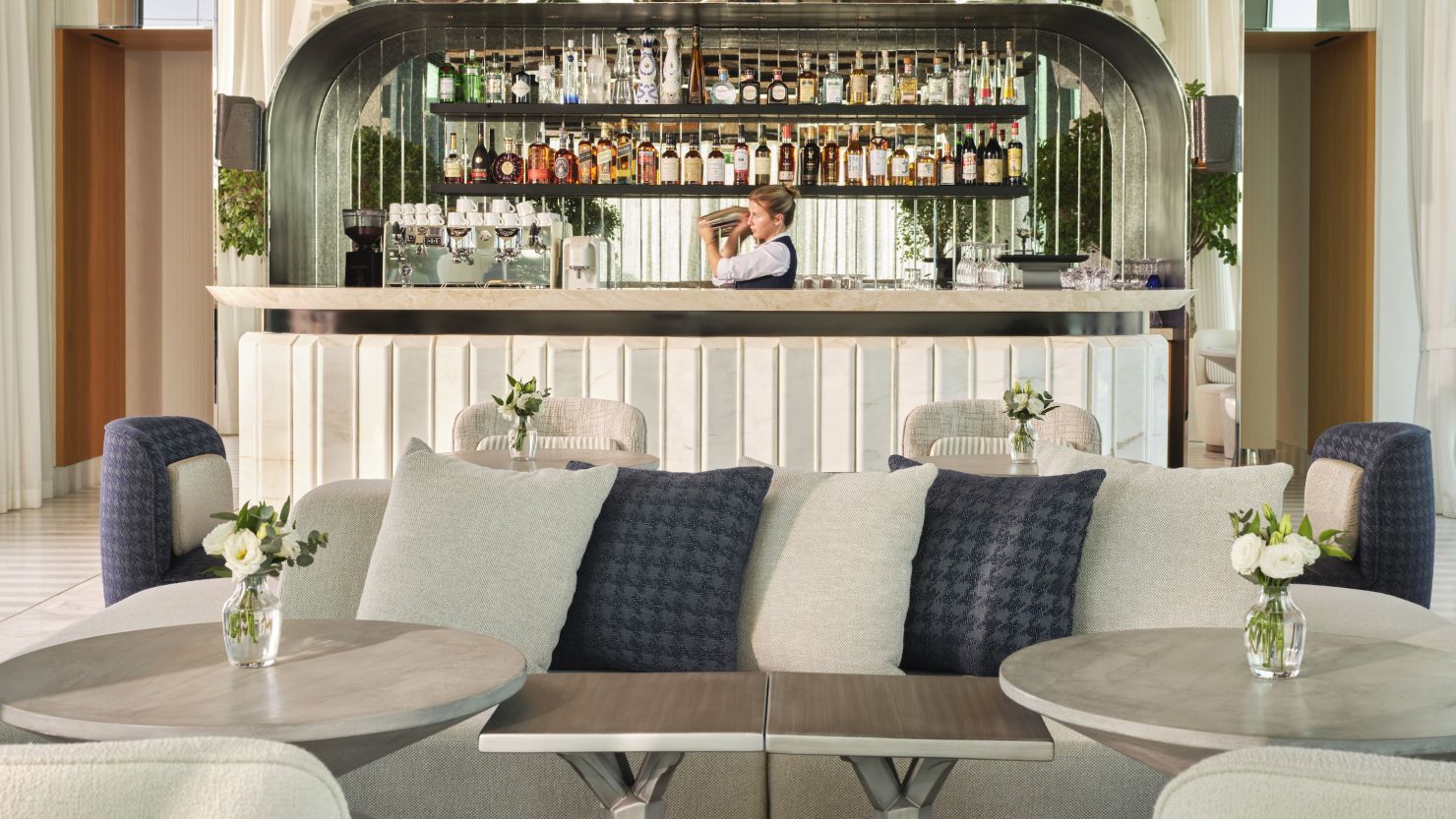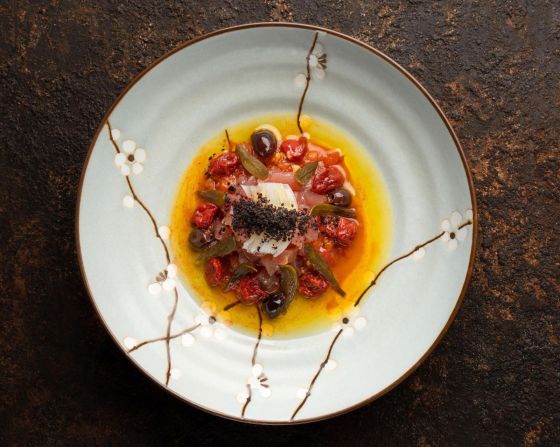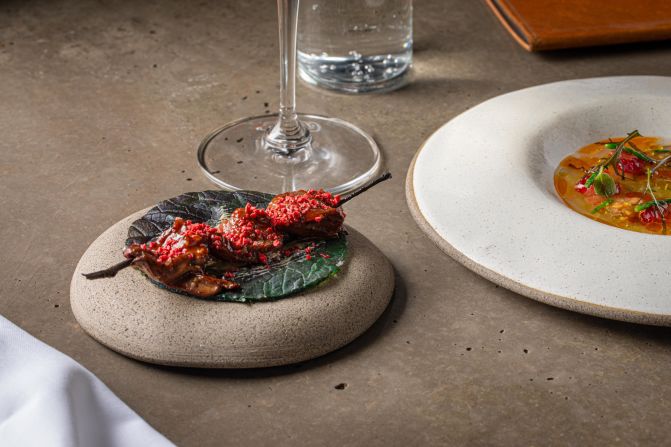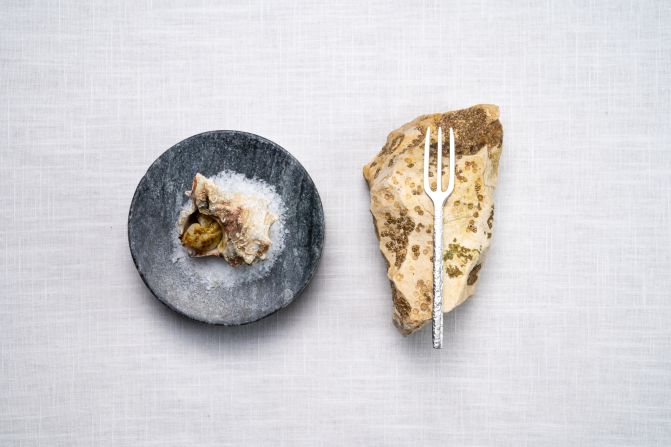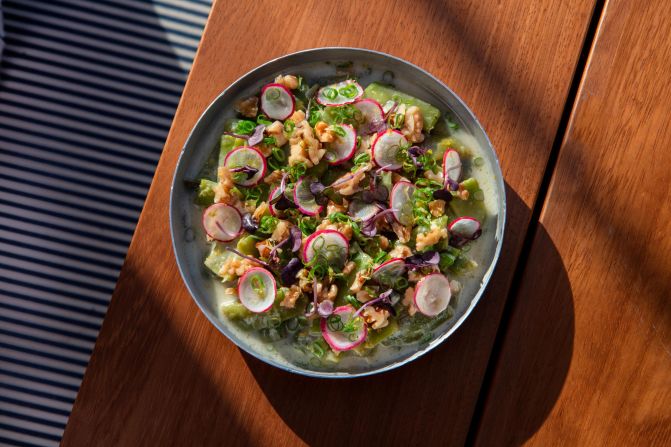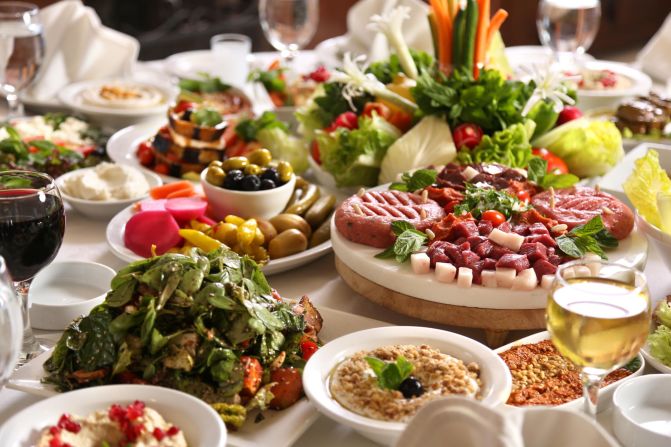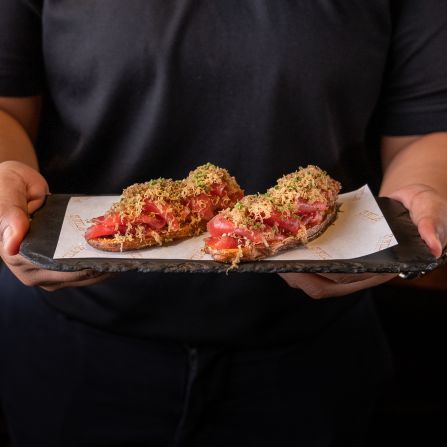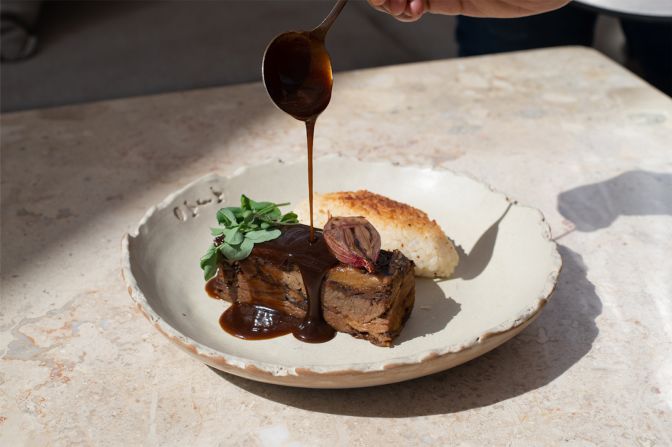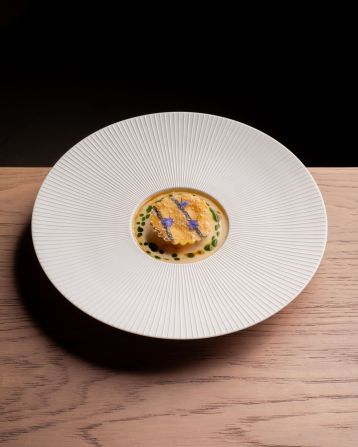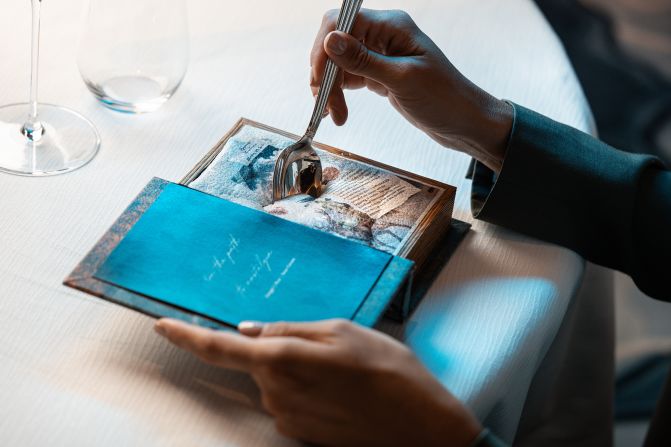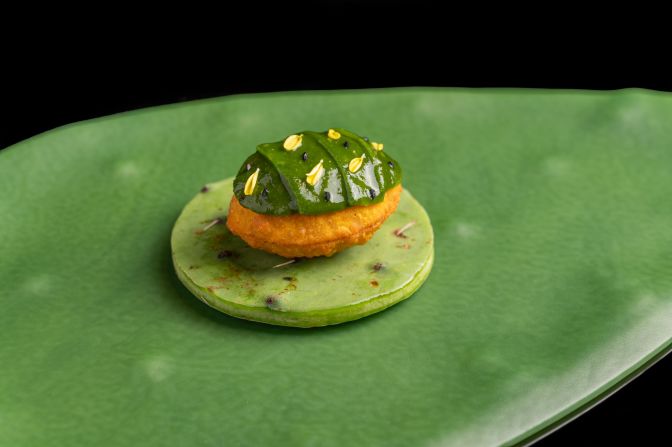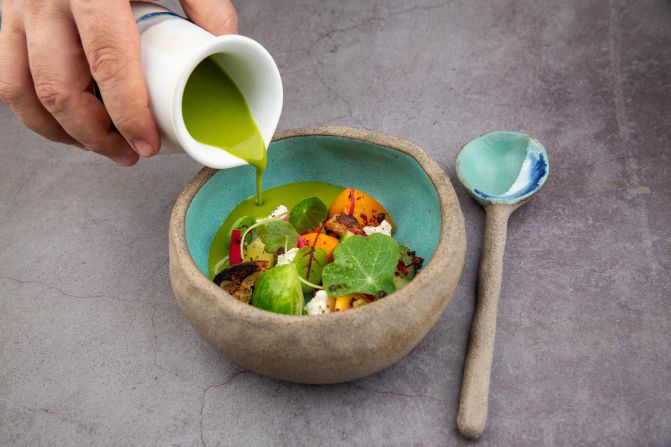Editor’s Note: This series is, or was, sponsored by the country it highlights. CNN retains full editorial control over subject matter, reporting and frequency of the articles and videos within the sponsorship, in compliance with our policy.
At the bar on the 30th floor of The Lana — the first hotel from the Dorchester Collection to open in Dubai — chic clientele sip from glass flutes overlooking the City of Gold’s dazzling array of skyscrapers, silhouetted against the dark dunes beyond.
The bar, which opened earlier this month, is called High Society, a reference to the clientele who have typically enjoyed its signature drink: champagne.
The hotel’s director of food and beverage, Nicolas Caupain, is a self-confessed champagne aficionado, and designed the bar concept to allow guests to experience champagne “not just as celebratory wine but as a nice wine which you can enjoy every day,” he says.
It’s an unusual concept for Dubai. The Emirate has a complicated relationship with alcohol: in Islam, the official religion of the United Arab Emirates, alcohol consumption is prohibited. However, the city’s diverse, expat-heavy population and its push to grow its tourism sector has seen many of its alcohol laws relaxed in recent years, including decriminalizing alcohol in 2020 and scrapping its 30% alcohol sales tax last year, although Muslims are still prohibited from acquiring a license to buy alcohol.
While the city has over 13,000 restaurants, its bar scene has largely been confined to Michelin fine dining, nightclubs, and boozy brunches. Venues that emphasize the design and diversity of their drinks menus are few and far between.
But Caupain believes “there is a market in Dubai who are looking for this level of refinement and discovery,” and that High Society is part of a movement towards casual drinking venues.
Unlike other wines, champagne undergoes a second fermentation in the bottle, which gives it its signature fizz, making “every champagne different,” Caupain adds. Champagne is left to mature for at least 15 months, although vintages are left for up to 10 years. This unusual process creates a vast range of flavor profiles, exemplified by High Society’s 118 labels and extensive “by the glass”menu — one of the largest collections in the UAE, claims Caupain.
These are the best restaurants in the Middle East and North Africa, according to the 50 Best list group
A growing interest
High Society’s collection ranges from well-known champagne houses like Pol Roger (the favored champagne of Queen Elizabeth II and Winston Churchill) to artisanal-like “grower champagnes” Egly Ouriet, Larmandier Bernier, and Ulysse Collin.
As the name suggests, these lesser-known labels are small-scale champagne producers that grow their own grapes — and they are surging in popularity globally, says Samuel Lacroix, wine director at Al Muntaha, a Michelin-starred European fine-dining restaurant at the iconic Burj Al Arab hotel.
“Smaller labels tend to produce super cool, exclusive and delicious champagnes,” says Lacroix.
Al Muntaha, which was recognized by Star Wine List as having the best sparkling wine list in the UAE earlier this year, has 166 labels on its champagne list, including around 60 recently added grower champagnes, says Lacroix. Dubai’s changing demographic, which in the past two years has included an influx of business elite and professionals attracted by the Emirate’s golden visa, is pushing the city’s food and beverage scene to compete with other international cities, he says, adding: “The clientele is getting more refined.”
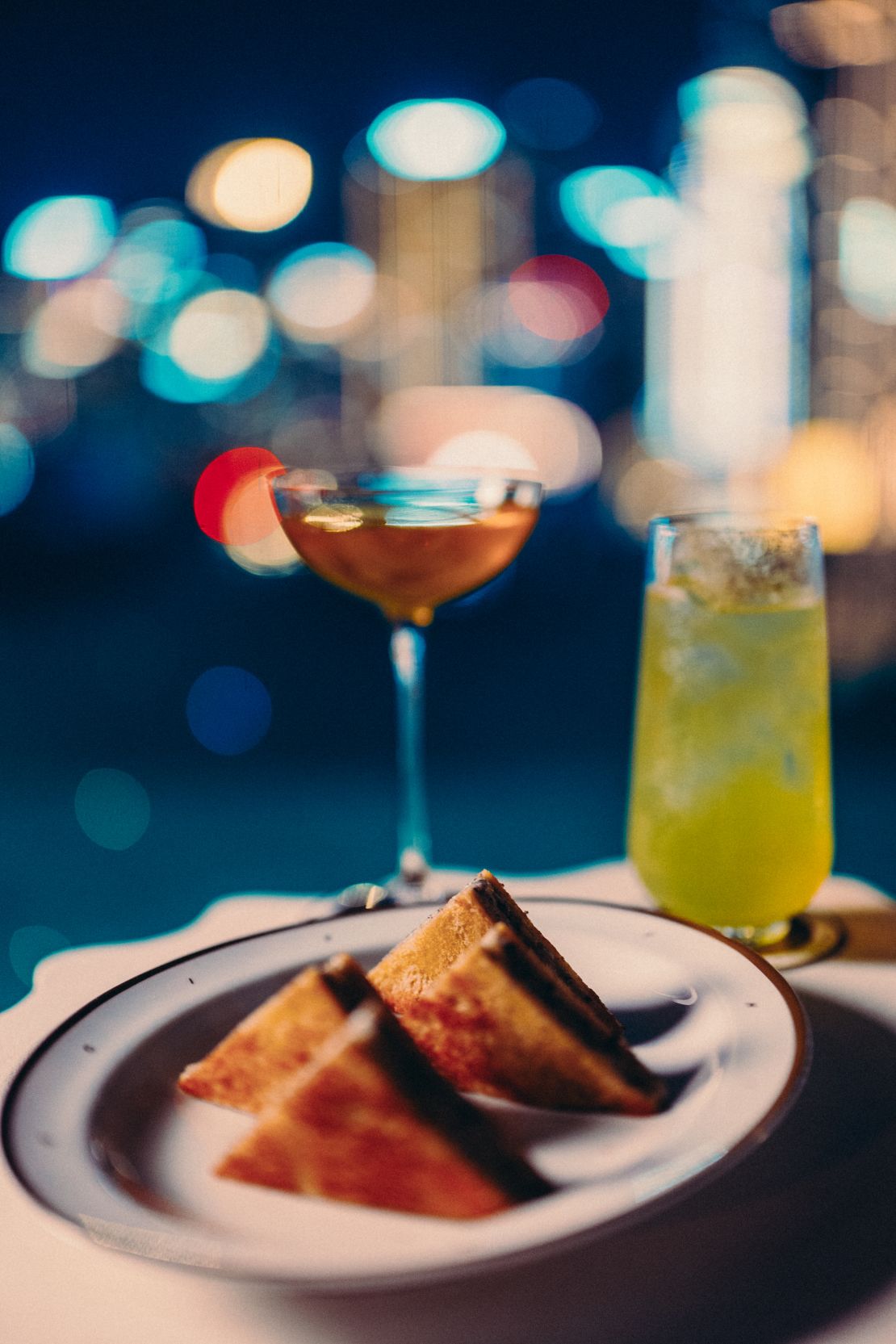
The UAE already dominates for its wine selection in a region that generally has restrictive alcohol laws — in 2022, it was the largest importer of champagne in the Middle East and Africa, according to data from the Comité Champagne trade association, importing nearly three times as many bottles as the rest of the Arabian Peninsula combined — but suppliers favor the big champagne houses, which are easier to buy in bulk, says Lacroix. However, as more world-class sommeliers and chefs descend on the city, they’re bringing with them preferences for more unique products and culinary experiences.
“To have all of these champagne names here, I think that we’re getting into the big leagues in the champagne world,” says Lacroix.
“Casual wine culture”
More and more restaurants in Dubai are offering unusual wines and champagnes, such as Josette, a French restaurant that opened in 2023 and serves its own private-label champagne, and BOCA, winner of the 2023 Green Michelin Star, which offers a list of organic, biodynamic or eco-conscious sparkling wines.
Even Dubai’s national airline, Emirates, is on board with the city’s penchant for fizz: in December 2022 it became the only commercial airline in the world officially serving Moët & Chandon, Veuve Clicquot and Dom Pérignon onboard and claims it purchases more champagne than any other airline in the world.
Award bodies are also beginning to pay attention to the region: Gault&Millau, a French dining guide, opened its UAE office in Dubai in 2022, launching the UAE Champagne index the same year; and just last month, Star Wine List, a Swedish publication, launched its inaugural awards for the UAE. For both awards, the majority of winners and nominees were located in Dubai.
While the bar scene is evolving quickly, it still faces challenges, often stemming from the country’s history of alcohol prohibition: there are just two wine suppliers in the city and a 50% customs duty on alcohol. Additionally, many venues are not set up for the kind of storage that fine wines and champagnes require — a major problem for smaller or independent restaurants, says Lacroix, as storing wine incorrectly in Dubai’s year-round heat could damage the stock.
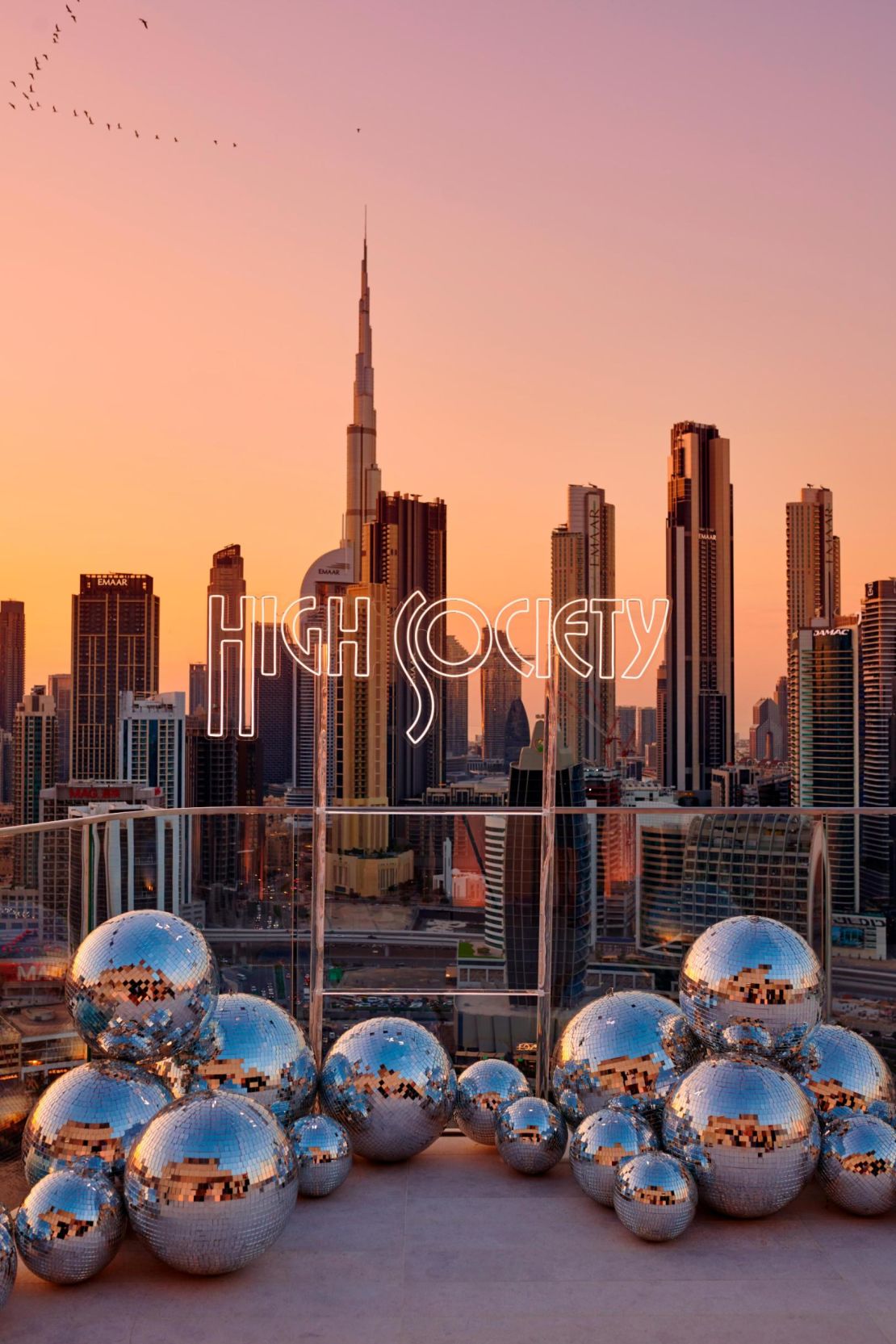
And the culture around drinking is largely focused on dining or special occasions, with little in between, says Krister Bengtsson, founder of Star Wine List.
“This more relaxed setting of sharing wine, it’s not really present yet — whereas if you’re in Paris, London, New York, (wine bars) are really where things are happening,” says Bengtsson, adding that new venues like High Society could help create a “casual wine culture” that emphasizes the drinks rather than food.
“It’s interesting to see a lot of good wines and champagnes by the glass at unusually lower prices in the Dubai market, to allow people to taste the wines,” says Bengtsson.
The growing interest in artisanal labels is also “adding a new layer of perspective both for wine lovers and restaurants,” and “putting pressure on the importers to add more diversity and smaller scale to their portfolio,” Bengtsson adds — all things that are pushing the city’s drinks scene to evolve.
At High Society, Caupain hopes that a luxurious finger food menu (designed by French chef Jean Imbert to pair with champagne) and a vinyl DJ will create a laid-back atmosphere that allows guests to enjoy champagne on a range of occasions — and launch a new era for Dubai’s bar scene.
“Our pricing strategy is made for people to keep coming back — come on a Tuesday with friends, come back with a partner on a Thursday, or a business partner on the weekends,” says Caupain, adding: “We want to make a lifestyle destination.”
